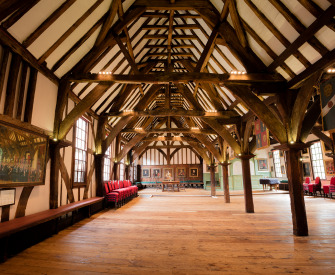The diligent achievement of the ancients is still in our possession. They make their own past present to our times, and we ourselves wax dumb: whence the memory of them lives in us and we are unmindful of ours.
Notable miracle! The dead live, the living are buried in their stead. Our times offer perhaps something not unworthy of “the buskin of Sophocles.” But the illustrious deeds of modern men of might are little valued, and the castaway odds and ends of antiquity are exalted. This is surely because we know how to blame and because we know not how to write; we seek to tear to pieces and we deserve to be torn. Thus the forked tongues of detractors are responsible for the rarity of poets. Thus minds grow slack, wits are undone; thus the native strength of this time is unduly extinguished, and the lamp is quenched, not indeed by lack of fuel, but craftsmen wax inert and the record of the present is lightly reckoned. So Caesar lives in the praises of Lucan, Aeneas in those of Virgil, not the more by their great merits than by the watchfulness of poets. Only the trifling of mimes in vulgar rhymes celebrate among us the godlike nobility of the Charleses and the Pepins—no one speaks of living Caesars; but their characters, full of bravery and self-control, and inviting everybody’s wonder, are ready to the pen. If you look upon Hannibal or Menestratus or any name of sweetness hallowed by time, you give all your attention, and eager to plunge into the fabled cycles of the golden age, you exalt in their deeds. You embrace with all reverence the tyranny of Nero and the avarice of Juba and whatever else antiquity offers; you reject the gentleness of Louis and the generosity of Henry.
From Courtiers’ Trifles. Thought to be of Welsh descent, Map was educated at the University of Paris. In 1179 he represented the English king at the third Lateran Council. After his return to England, he held successively higher positions in the church, rising from chancellor of Lincoln to archdeacon of Oxford in a decade. Although he was once believed to have authored various Arthurian romances, the Courtiers’ Trifles, a miscellany of satirical anecdotes and folklore, is his only known surviving work.
Back to Issue


